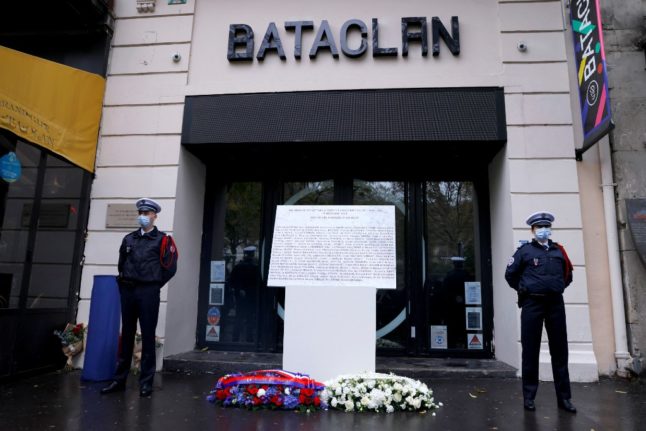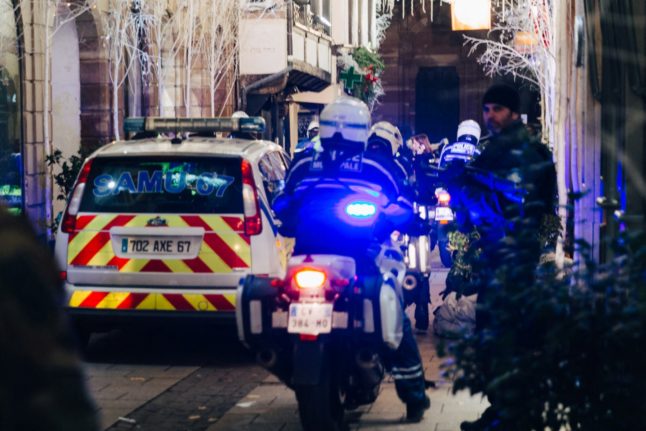Proceedings will take place under high security in NATO’s former headquarters and are expected to last until May 20, with a verdict likely to take several more weeks.
They are happening in parallel with a trial in Paris of 20 suspects charged in France, which opened in September and is expected to run until the end of June.
The November 2015 Paris attacks saw 130 people killed, with the Islamic State group claiming responsibility.
Assailants set off suicide belts outside the Stade de France stadium, as a group of gunmen in a car cut down people outside restaurants and bars. Three jihadists then killed 90 people attending a performance at the popular
Bataclan music venue.
Part of the attack was planned in Belgium, according to prosecutors.
The 14 accused in the Belgian trial — 13 men and one woman — are suspected of transporting, housing or financially helping some of the perpetrators of the attacks.
Charges include driving an alleged attacker to the airport for a trip to Syria.
Some of the suspects are close to Salah Abdeslam, a 32-year-old French national who is the only surviving suspected assailant after failing to set off his bomb belt. Abdeslam is on trial in Paris where on Friday he apologised to the victims at the end of his testimony.
Apology to ‘all victims’
His comments marked a dramatic end to three days of testimony: in the initial stages of the trial he had maintained a rigid silence apart from occasional outbursts against the court.
“I wish to express my condolences and offer an apology to all the victims,” Abdeslam told the court in a sometimes tearful statement.
“I know that hatred remains… I ask you today that you hate me with moderation,” he said, adding: “I ask you to forgive me.”
Abdeslam, the main trial suspect after the other jihadists were all killed during or in the wake of the attacks, has said he had planned to blow himself up in a crowded bar but stopped after seeing the people whom he was about to kill.
If convicted, he faces life in prison.
Prosecutors allege that the suspects to be tried in Belgium had knowledge of the jihadist group’s intentions, or helped Abdeslam — who was living in the Brussels neighbourhood of Molenbeek — go to ground in the four months following the attacks that he was a fugitive.
After surviving the attack, Abdeslam fled to the Molenbeek district where he grew up but was captured in March 2016.
Two tried in absentia
One of the suspects in the Belgian trial is Abid Aberkane, Abdeslam’s cousin who lived nearby him in Molenbeek. He is charged with hiding Abdeslam at his mother’s house in the days before his March 2016 arrest.
Others are friends of the attacks’ mastermind, Abdelhamid Abaaoud, or of two brothers who were suicide bombers during later attacks in Brussels on March 22, 2016 that killed 32 people.
Another is Ibrahim Abrini, brother of Mohamed Abrini, an alleged assailant who decided not blow himself up during the part of the 2016 attack in Brussels’ airport.
Ibrahim Abrini is suspected of helping his brother get to Syria in June 2015, by buying him a phone.
Two of the 14 suspects charged will be tried in absentia. The two, both Belgians, are thought to have died in Syria.
They are Sammy Djedou, whose death was announced by the Pentagon in December 2016, and Youssef Bazarouj, linked to the Islamic State group’s external operations cell and who is believed to have been killed in combat.
Djedou, born to an Ivorian father, went to fight in Syria in October 2012.
He is the only one in the trial to be described by prosecutors as a leader of a “terrorist group”.
Most of the suspects are charged with “participating in the activities of a terrorist group”, which carries punishment of up to five years in prison.
Two are to be tried on linked charges: one for allegedly violating laws on guns and explosives, and the other — the only woman on trial — for allegedly providing false identity documents to the assailants in Paris and Brussels.
READ ALSO:



 Please whitelist us to continue reading.
Please whitelist us to continue reading.
Member comments